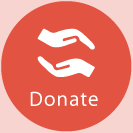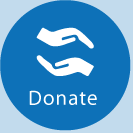Reflections and Aims on Starting as Director of AVID

In my first week at AVID the government announced its plans to outsource the process for people seeking asylum in the UK to Rwanda. The announcement was shocking in its extremity and lack of humanity, but it also, as we know, builds upon existing inhumane policies and practices operating across the UK immigration detention estate. Just as the government kept the public in the dark over the nature of their agreement with Rwanda, the detention system remains opaque and hidden from public view. Detention centres operate in remote areas of the UK and come at a huge financial cost without transparency over the profits that are made by private contractors who run detention centres. The supposed “deterrent effect” of the Rwanda plan is also evident in the detention system. People are detained with a lack of oversight even when there is not a clear prospect of removal from the country, failing by its own standards and bringing its very function into question. And, most pertinent, there is the human cost of detention; the harm caused by detention is well-documented through the testimonies of people who have been detained, in research and clinical professional bodies. The loss of agency that is caused by detention has now been heightened further for people who are detained and facing the prospect of removal to Rwanda.
To effectively challenge escalating immigration policies, we must raise public awareness of - and oppose - what is already happening as part of the UK’s hostile environment policies.
Since starting at AVID, I have been meeting with our members and been inspired by their determination to resist these policies and create an immigration environment that welcomes, using diverse means to do so. To name a few, on meeting Gatwick Detainees Welfare Group I learnt how they use their position as volunteer visitors to give voice to the stories of people detained, sharing these through walking groups. Most recently, they held a “walking inquiry” to explore questions raised, and missed, by the public inquiry into the mistreatment at Brook House Immigration Removal Centre. The team at JRSUK explained the role of volunteer visiting in their wider casework support and the value in providing a space for conversations outside of the immigration process; breaking the monotony and giving some relief to people who are detained. Waging Peace work with Sudanese asylum-seekers to build meaningful lives in the UK, taking a person-centred approach that recognises what is unique to each individual to make their life meaningful. This has been a challenge during the pandemic as many members of their community have been held in hotels. A team of two, they have made their resources count by working closely with volunteers to ensure that people in hotels have access to advice and guidance. And Detention Action continually keep the pressure on government to defend the rights of people in detention whilst also outlining clear alternatives including policies for a humanitarian visa scheme and a time limit for detention.
The juxtaposition between the political context and the vital work of our members has prompted me to keep in mind the importance of hope in fighting for change and believing that our approach to immigration can be different.
The platform AVID provides gives our members the opportunity to call on the expertise of others in the network, make visible the changes and complexities across the immigration estate and share resources to build capacity. Recent developments in our team, including the current recruitment of a new member to the team who will support developing visitor groups in Derwentside and in prisons, will enable us to consolidate the collaborative working dynamic between our members that has developed through online communication over the course of the pandemic.
As we develop our network, we will continue to consider how we can foster hope amongst our community.
On meeting with our members, what has become clear is the unique role that visitors have, not only in being a friend, but in acting as a witness to the treatment of people who have been detained in their communities. Recognising this role, AVID has previously described visitors as “informal human rights monitors.” As we re-launch training, deep dive sessions and skill shares we will be looking for ways to involve volunteers more in the AVID community and use their positions - as the eyes and ears of people in detention – to be part of a voice that highlights both the need to change and the possibility. Through our Members Charter, we plan to set out our values and principles and provide a clear alternative to the current guiding principles for immigration detention. The process for the charter began at our conference in 2019 and has been revisited since through interviews with our members. These conversations have made evident shared values across our network such as solidarity, independence and being lived-experienced led. Over the coming months, we plan to finalise the charter, ready for our 2022 conference, with a series of focus groups led by an Advisory Group formed of people who have experience of detention. Our hope is that the charter can provide a framework for volunteer visiting and being effective human rights monitors. We see it as a way to hold ourselves to account on the position that we advocate for; demonstrating the desire and will of communities to treat people under immigration powers with respect and dignity.
I am delighted to have the opportunity to work with the fantastic team at AVID, trustees and our members as we take these next steps.




